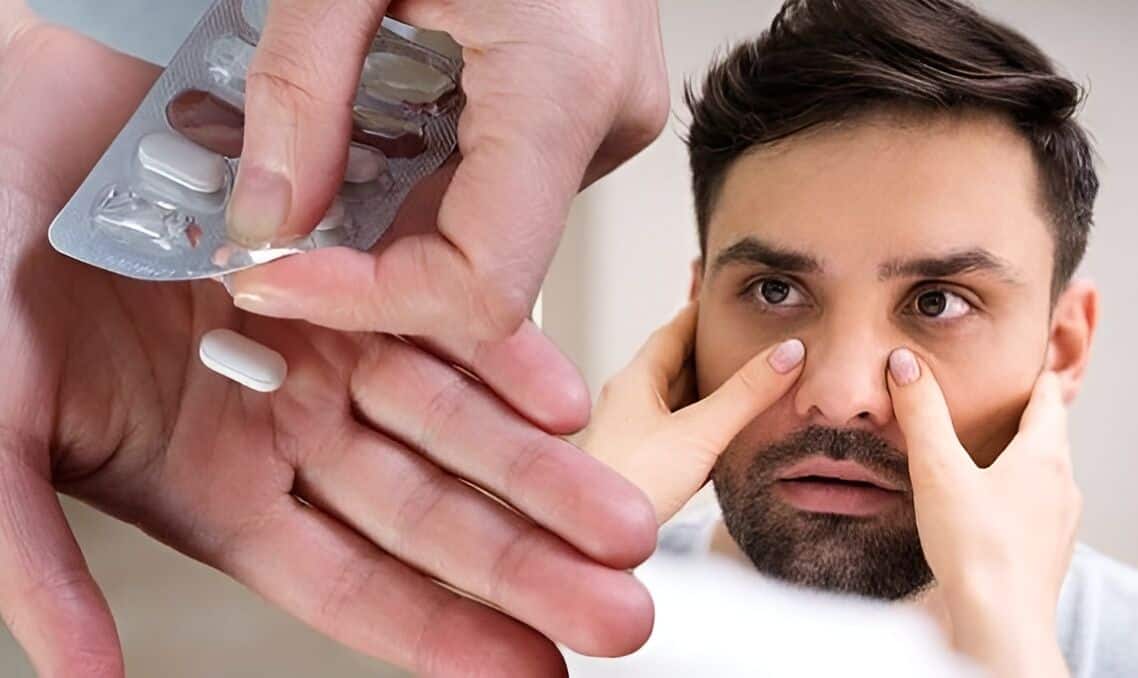Taking high doses of a certain vitamin B supplement can cause blindness

The surprising side effect of a common supplement
Many people take vitamin B3, also known as niacin or Niacinamide, to lower their cholesterol and manage hyperlipidemia. Some even take intra-muscular or intravenous versions of it for so-called claimed beauty benefits such as lighter and fairer, youthful appearance and even reduced pore visibility. It is often considered a safe, over-the-counter supplement with beneficial effects on cardiovascular health. However, recent findings have revealed a shocking and severe side effect of taking excessive doses of niacin: it can cause serious eye damage and even blindness.
In a groundbreaking clinical report, retina specialists at the New York Eye and Ear Infirmary of Mount Sinai (NYEE) documented a case of severe vision loss linked to high doses of over-the-counter niacin. This condition, known as niacin-induced cystoid maculopathy, involves retinal swelling and can lead to permanent eye damage if not promptly diagnosed and treated.
A cautionary tale
The case involved a 61-year-old man who arrived at the hospital with worsening blurry vision in both eyes. His initial examination revealed that he was nearly legally blind, with a visual acuity of 20/150 in the right eye and 20/100 in the left eye. The patient had a history of significant hypertension and hyperlipidemia and had been taking three to six grams of niacin daily for several months to reduce his risk of cardiovascular events. Unaware of the risks posed by the vitamin, he purchased the supplement at a drugstore without consulting a physician.

The NYEE team used advanced imaging technologies, including fluorescein angiography, optical coherence tomography (OCT), and multifocal electroretinography (MERG), to diagnose the problem. These tools revealed that the high dose of niacin had led to cystoid macular oedema, a condition where fluid accumulates in the macula (the central part of the retina responsible for detailed vision), causing swelling. The MERG results indicated that the toxicity specifically affected the Muller cells, which support the retinal structure.
Fortunately, upon immediate discontinuation of niacin, the patient’s condition began to improve. Within a week, his vision showed noticeable improvement, and two months later, his vision was fully restored to 20/20. This case not only highlighted the dangers of self-prescribing high doses of supplements but also demonstrated that niacin-induced maculopathy can be reversible if caught in time.
The importance of medical supervision
Dr Richard Rosen, Chief of Retina Services at NYEE and lead investigator, emphasised the importance of medical supervision when taking vitamin supplements.

“People often live by the philosophy that if a little bit is good, more should be better. This study shows how dangerous large doses of a commonly used over-the-counter medication can be,” Dr Rosen stated.
“People who depend on vision for their livelihood need to realise there could be long-lasting consequences from inadvertent overdosing on this vitamin.”
Dr Jessica Lee, coauthor of the study and Assistant Professor of Ophthalmology at the Icahn School of Medicine at Mount Sinai, echoed these sentiments. She highlighted the necessity of consulting a physician before taking any supplement or over-the-counter product.
“Just because nutritional supplements are available without prescription does not mean they are completely safe to use without supervision,” Dr Lee explained.
“The correct dosage and potential interactions with other medications should be carefully reviewed with a doctor to avoid preventable unexpected consequences.”
The case serves as a stark reminder of the potential dangers associated with self-prescribing and the importance of professional medical advice. Despite the widespread availability and perceived safety of over-the-counter supplements, they can cause serious harm if misused.
A call for awareness
This report underscores the need for greater public awareness about the risks of high-dose vitamin supplements. While niacin can be beneficial when taken in appropriate doses, exceeding the recommended daily allowance can have severe and unintended consequences. The NYEE study is the first to identify specific cellular toxicity and show that discontinuing the supplement can reverse the damage, offering hope to those who may be at risk.

As this case illustrates, the best approach is to consult with healthcare professionals before beginning any new supplement regimen. Ensuring that the dosage is safe and that there are no harmful interactions with other medications can prevent serious health issues, including vision loss.
There have been many other reports of girls and women in Asia taking B3 injections at beauty clinics or wellness centres and ending up with either damaged eyes or some even becoming permanently blind.
By sharing this information, we can help others avoid similar risks and make informed decisions about their health. Remember, more is not always better when it comes to supplements, and professional guidance is crucial for safe and effective use.
Not all supplements are safe
The hidden dangers of niacin toxicity highlight a broader issue with over-the-counter supplements: the misconception that they are always safe. The findings from NYEE serve as a crucial reminder of the potential risks and the importance of medical supervision. Before taking any new supplement, always consult with a healthcare provider to ensure it is both safe and necessary. Your vision and overall health depend on it.
Latest Thailand News
Follow The Thaiger on Google News:


























